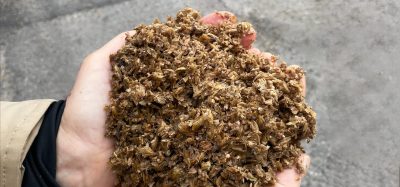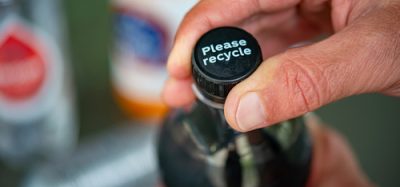Industry is urging immediate action to end illegal HFCs
- Like
- Digg
- Del
- Tumblr
- VKontakte
- Buffer
- Love This
- Odnoklassniki
- Meneame
- Blogger
- Amazon
- Yahoo Mail
- Gmail
- AOL
- Newsvine
- HackerNews
- Evernote
- MySpace
- Mail.ru
- Viadeo
- Line
- Comments
- Yummly
- SMS
- Viber
- Telegram
- Subscribe
- Skype
- Facebook Messenger
- Kakao
- LiveJournal
- Yammer
- Edgar
- Fintel
- Mix
- Instapaper
- Copy Link
Posted: 19 October 2020 | New Food | No comments yet
The European FluoroCarbons Technical Committee has launched a call for industry and consumers to put a stop to the illegal trade in hydrofluorocarbons (HFCs) via a pledge to #SayNoToIllegalHFCs.


The European FluoroCarbons Technical Committee (EFCTC) hopes that this pledge will encourage joint action across the refrigerant value chain to eradicate the black market for hydrofluorocarbons (HFCs), which threaten Europe’s climate goals and the environment, stressing that all parties must do their part.
According to the committee, the thriving black market for HFCs undermines Europe’s climate goals, funds organised crime and threatens the livelihoods of many small- and medium-sized businesses across the EU. With this new pledge, EFCTC invites all actors engaged in the HFC value chain to #SayNoToIllegalHFCs. From producers, importers, and distributors, to contractors and end users – the committee is calling for everyone to do their part to detect and report illegal products when they purchase, service or sell HFCs. Pledgers can sign up as individuals or as companies.
The successful eradication of this damaging black market depends on strong enforcement and policy action across the EU, says the group. EFCTC also urges officials across the EU to raise awareness about the pledge and work with industry to achieve common goals.
Scale of HFC problem
Since 2015, the EU’s F-gas regulation aims to phase down the climate impact of HFCs through an established quota system. However, data analysis by Oxera and EFCTC in June 2020 concluded that the black market for illegally imported HFCs in Europe in 2018 contributed up to 34 million tonnes of CO2 equivalent each year; comparable to the emissions from more than all cars on the roads in Spain.
Speaking at Chillventa eSpecial 2020 – the world’s leading trade fair for refrigeration technology – Felix Flohr, Sales and Marketing Manager, Regulatory Specialist at EFCTC member company Daikin Chemical, said “We stand behind the F-gas regulation but ambitious legislation should be met with ambitious enforcement at EU borders. Fines need to be higher, harmonised and consistent across all member states. Customs officers need to be equipped with the tools to identify illegally imported HFCs and access the HFC registry in real time.”
The environmental policy ambitions of the European Green Deal are not the only thing under threat. European businesses across the supply chain, many of whom are small- and medium-sized companies, are potentially unwittingly distributing and using illegally-imported products, or else they are suffering huge losses when undercut by those who do. Based on a survey by the Environment Investigation Agency (EIA), 83 percent of all workers in the refrigerants value chain are aware of the illegal trade of HFCs and 72 percent have been offered disposable cylinders despite these having been banned in Europe since 2006.
Recent seizures of illegal shipments in Romania, Rotterdam and Livorno, Italy indicate that the issue is widespread and illustrate the complexity of illegal trade routes and reseller markets. From production to its end use in construction, hospitality or the automotive industry, an HFC canister changes many hands. For this reason, the black market for refrigerants can only be eradicated if every link in the value chain takes its responsibility seriously and joins the fight.
“Now is the time to act. The next quota reduction in January 2021 will further shrink the legal market to 45 percent of the 2015 benchmark posing an opportunity for illegal actors to meet demand and grow the black market,” says Dave Smith, Business Director at Koura Global and member of the European FluoroCarbons Technical Committee (EFCTC).
Click here to learn more about the issue.
Related topics
Environment, Equipment, Refrigeration and freezing, Regulation & Legislation, Supply chain, Sustainability
Related organisations
Daikin Chemical, Koura Global, Oxera Consulting LLP, The European FluoroCarbons Technical Committee (EFTC)









